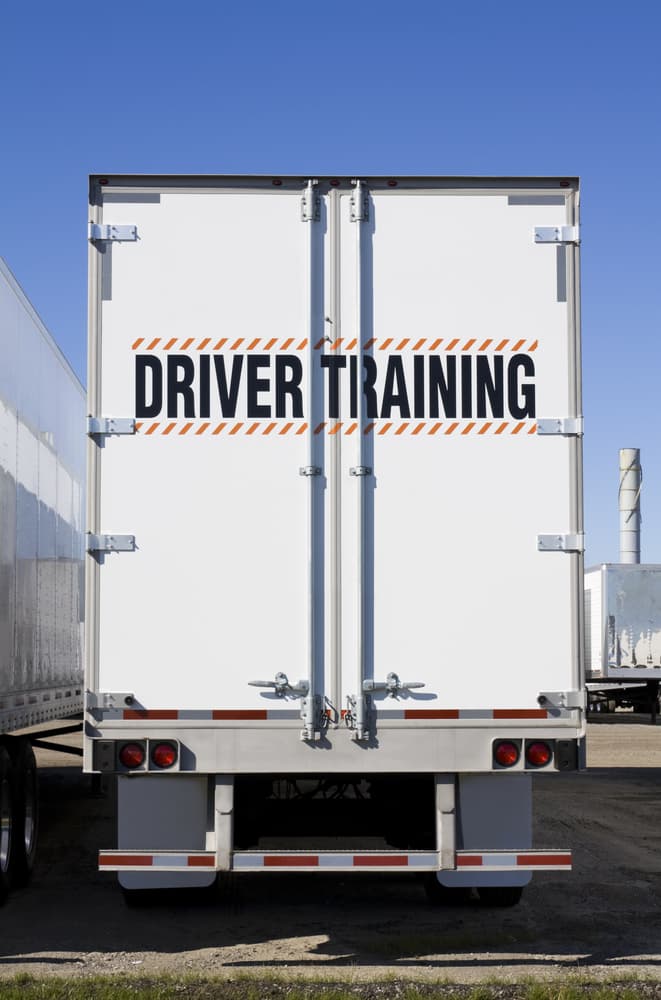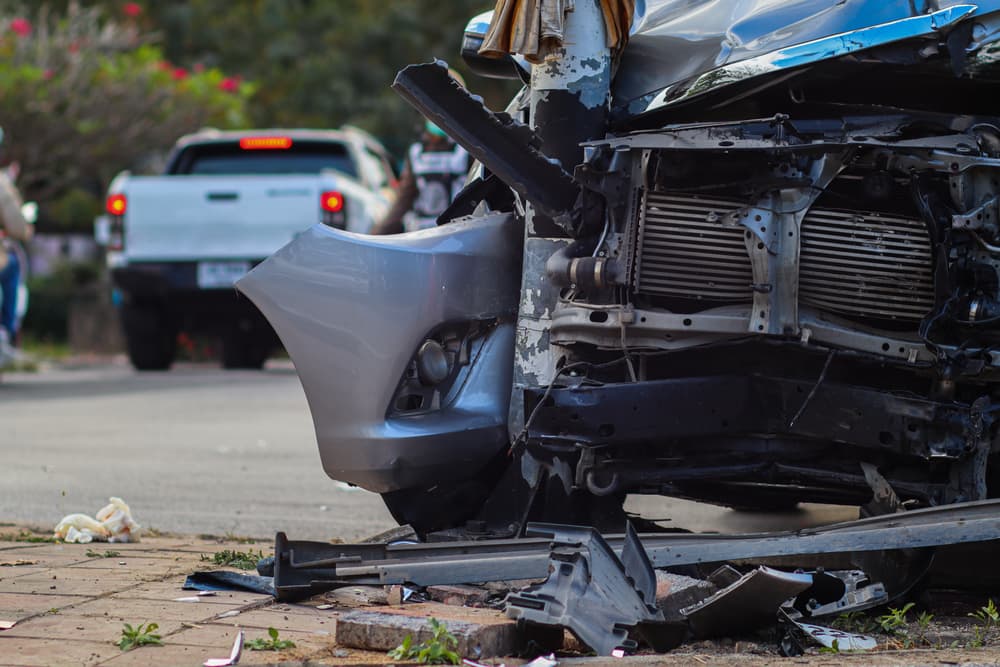Trucking companies in the United States must follow Federal Motor Carrier Safety Administration (FMCSA) rules. When they do not, there can be severe consequences. The company can be heavily fined or even shut down. If the FMCSA violation triggers an accident, the victim can receive compensation in a personal injury claim. Learn in this article what happens when a trucking company violates FMCSA rules. Talk to a commercial truck crash lawyer if you have questions about a recent truck accident.
Schedule a Free Initial Consultation Today!
FMCSA Rules Overview For Truckers

The Federal Motor Carrier Safety Administration, or FMCSA, is a federal agency that oversees the interstate trucking industry in the US. One of the FMCSA's major aims is to reduce truck crashes, injuries, and fatalities involving commercial trucks and buses.
That is why the FMCSA has issued detailed regulations that trucking companies and drivers must follow. There are many important FMCSA rule categories that drivers and companies must obey. If they do not, they can be fined or even shut down.
Hour Of Service (HOS) Rules
HOS rules state how many hours per day and how many days in a week a trucker can drive and work before taking a break. Many studies show that driver fatigue is a major cause of accidents with commercial trucks. Truckers must limit their time behind the wheel and on duty to reduce the risk. They must take required breaks after working or being on duty for a certain time. Carriers must maintain logs of their employees' time on the road and rest time to show that HOS rules are followed. Current HOS rules state the following regarding driving time, on-duty time, and breaks and rest periods:
- There is a 60-hour, seven-day limit and a 70-hour, eight-day limit. These rules limit the hours the driver can drive or be on duty.
- The driver is allowed 14 consecutive hours to be on duty and drive.
- After 14 hours, the driver cannot drive again unless they have been off for 10 hours in a row.
- The driver cannot drive for more than 11 total hours in the 14 hours.
Medical Requirements
The rules state that truckers must meet specific medical requirements to drive. This ensures that truck drivers don't have medical issues that can prevent them from driving their rigs safely.
For example, some types of heart disease, hypertension, epilepsy, and other serious medical issues can make a driver unfit for the road. Truck drivers must occasionally have their health and physical fitness reviewed to continue to drive a commercial truck. There have been many instances over the years of medical emergencies causing serious and fatal truck accidents. If you or a loved one suffers an injury by a truck driver who experienced a medical emergency, you can be entitled to compensation.
Truck Maintenance Requirements
Trucking companies must keep their trucks in safe operating conditions. This requires the truckers and companies to do regular truck inspections, make repairs as needed, and replace parts when required. They also must adhere to a regular maintenance schedule. The carrier must have detailed records of their repair and maintenance work.
Many truck accidents happen because of poor maintenance and failure to replace parts as required. For example, truck accidents often happen because of poor traction with bald tires, blowouts, and brake failures. A truck accident attorney can obtain the vehicle maintenance records of the truck to determine if the maintenance schedule was followed.
Driver Training Requirements
Truck drivers must meet various training requirements and show that they understand driving safety rules and have driving proficiency to operate a truck safely. Carriers must show that the drivers they hire have passed the required training and get refresher classes to maintain their knowledge and skills.
Cargo And Weight Rules
Trucks can weigh up to 80,000 pounds when fully loaded. The FMCSA rules state truck and cargo weight and size limits and have specific standards for securing cargo safely. When a truck is incorrectly loaded, there is a higher risk of mechanical failure, tipping, loss of control, and other problems that can lead to serious accidents.
Many serious truck accidents are caused by trucks losing control due to being overweight or loaded incorrectly. If a trailer overturns onto a nearby vehicle when the driver loses control, the passenger vehicle occupants can be severely injured or killed.
Alcohol And Drug Tests
The FMCSA also requires regular drug and alcohol tests for truck drivers to make sure they are not driving under the influence. Substance abuse by truck drivers greatly increases the chances of serious and fatal accidents.
Your truck accident attorney can obtain the drug and alcohol test records of a driver who injured you in an accident. If you notice signs that the driver may be under the influence, report it to the responding police officer immediately.
What Are Frequent FMCSA Regulation Violations?
While the FMCSA has comprehensive rules to ensure drivers and trucks are safe, many violations occur daily. Some FMCSA rule violations are because of the desire to save or make money. Others are because of carelessness or oversights. Regardless of the excuse, rule violations endanger the public and are not tolerated. Some of the most common FMCSA regulation violations are:
- Hours of service violations occur when the trucking company encourages the driver to meet an unrealistic delivery schedule. The truck driver may also decide to drive too much to meet certain performance and compensation goals.
- Lack of compliance with maintenance regulations to keep rigs on the road regardless of conditions to increase revenues.
- Not conducting proper driving training and screening. This often occurs because there is an experienced truck driver shortage and the carrier may try to hire drivers without enough training or qualifications.
- Drug and alcohol violations. Many of these FMCSA rule violations involve truckers taking prescription or OTC drugs to treat medical problems or to avoid driver fatigue. Even if the drug was OTC or a prescription, the driver and company can still be liable for your damages in a lawsuit if an accident occurred.
- Improper record keeping. Trucking companies and drivers may not keep good compliance records with FMCSA rules, such as HOS and maintenance regulations.
- Improper cargo securement. Shippers and carriers may not correctly balance the load, which can lead to a loss-of-control accident.
Violating FMCSA rules puts the public at risk. Penalties for FMCSA rule violations can include fines and the loss of the ability to put trucks on the road. If a rule violation causes a crash, the injured parties or their families may sue the carrier.
What Does The FMCSA Due When A Rule Is Violated?
The US government empowers the FMCSA to take enforcement action if a carrier violates a regulation. Typically, the FMCSA action happens after a compliance review, truck inspection, terminal audit, or a submitted complaint.
The FMCSA usually issues a 'notice of claim' that begins the enforcement process. FMCSA enforcement actions usually end with the carrier paying a fine and signing an agreement that states the company will take certain actions to be compliant. However, the trucking company can default on the notice of claim. This violation can lead to a 'final agency order,' which requires the company to take certain actions.
What Is The Legal Liability For FMCSA Rule Violations?
A carrier can face severe liability if an FMCSA rule violation triggers an accident. According to the negligence per se rule, a trucking company typically must pay damages if a rule violation causes harm that the rule was intended to avoid.
For instance, if a carrier encourages a trucker to break HOS rules and the sleepy driver rear-ends a car in traffic, the carrier is negligent. It violated the HOS rules that exist because the rule is supposed to prevent such accidents.
If you or a loved one was an accident victim, you can hold the driver, carrier, and others liable for the rule violation. You can, for instance, sue a third-party maintenance firm if it violated an FMCSA rule.
Note that the FMCSA doesn't compensate you for damages suffered. You must file a personal injury claim against the at-fault party to receive damages potentially.
The accident victim can seek compensatory damages for the rule violation that caused the accident. You could be entitled to compensation from the at-fault party or parties for loss of income, pain and suffering, medical bills, and mental anguish related to injuries and treatment.
If the rule violation caused a fatal truck crash, the surviving family may file a wrongful death lawsuit. This action may compensate the family for loss of income, burial and funeral expenses, loss of companionship, support, benefits, pensions, and more.
Remember that every truck crash is different, and fault must be proven for you to receive compensation. A truck accident attorney can review your case at no charge.
How Do You Know An FMCSA Rule Violation Caused A Truck Accident?
One of the most important jobs of a truck accident attorney is to determine why a truck accident happened. A detailed accident investigation and analysis must occur. A skilled truck accident attorney has the experience and resources to investigate a complex accident and determine its cause. They can also obtain and examine relevant records to pinpoint any FMCSA violations that have occurred.
The attorney also may hire expert witnesses, including accident reconstruction experts, who can review the observational and physical evidence to understand why the crash happened.
The FMCSA also investigates truck accidents. If an FMCSA representative thinks a rule violation occurred, the driver or company can be disciplined. A judge or jury can also determine whether a rule violation occurred.
How Does An FMCSA Rule Violation Affect A Truck Crash?
FMCSA rule violations often play a large role in legal proceedings after a crash. The rule violation can show liability and support a claim for compensation in a lawsuit or insurance claim. Here is how a rule violation can affect the at-fault party after a crash:
- It establishes negligence: An FMCSA rule violation can show negligence by the trucker, carrier, or third party. When the violation causes or contributes to a crash, it may show that the driver or carrier didn't meet their legal duty of care to operate within the law.
- It proves causation: An FMCSA rule violation can show that the driver's or carrier's actions caused or contributed to a crash. For instance, if the trucker drove beyond the HOS limits and was sleeping when the crash occurred, the violation may prove that fatigue triggered the crash.
- It shows a breach of duty: FMCSA rules set standards and duties for drivers and carriers. Violations may show a breach of the duties and can show negligence.
- Insurance claim denial: The insurance company can deny the claim if there is a rule violation.
- Expert testimony: An accident reconstruction specialist can use an FMCSA rule violation to support their view about what caused the accident.
- Criminal charges: If there is a major violation, it is even possible for the driver or carrier to face a criminal charge. This is a separate case from any civil case you file.
- Regulatory citations: Penalties or citations issued by the FMCSA can be used as evidence in a civil trial, which can aid your case.
Do I Have No Claim If There Was No FMCSA Violation?
You can still have a claim even if the carrier or driver didn't violate an FMCSA rule. The FMCSA regulations simply set the minimum standard of care that must be met. In many accidents, what matters most is well above and beyond the duty of care required by FMCSA rules.
So, just because there wasn't a rule violation when the accident happened, the at-fault party isn't off the hook. Truckers and carriers must safeguard the public from harm related to the operations of their rigs.
If you suffered an injury by a truck in an accident, regardless of any potential FMCSA rule violation, always ask a truck crash lawyer for advice.
Contact A Truck Accident Lawyer
Did a truck driver injure you? The trucker or their employer can be liable for your injuries, especially if there is an FMCSA violation. A personal injury attorney can review your case at no charge, so contact an attorney in your area today. Truck accident attorneys are not compensated unless they win your case.






